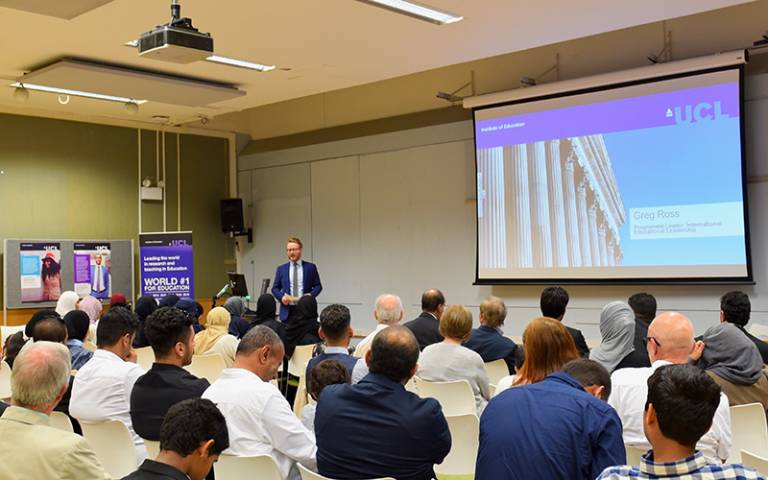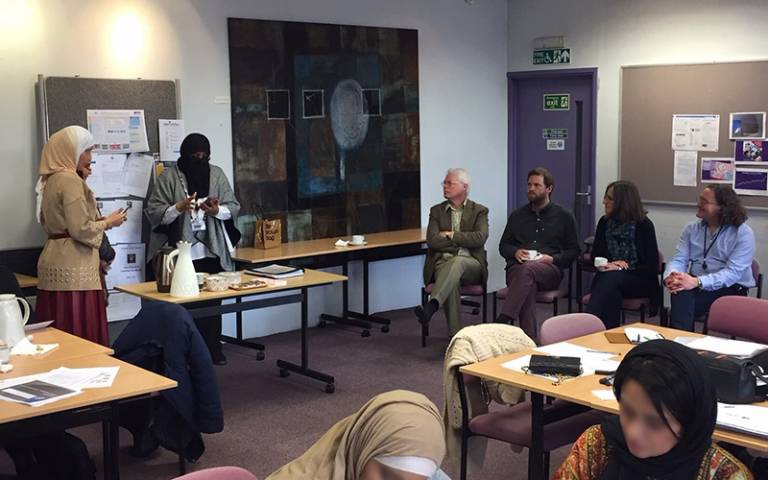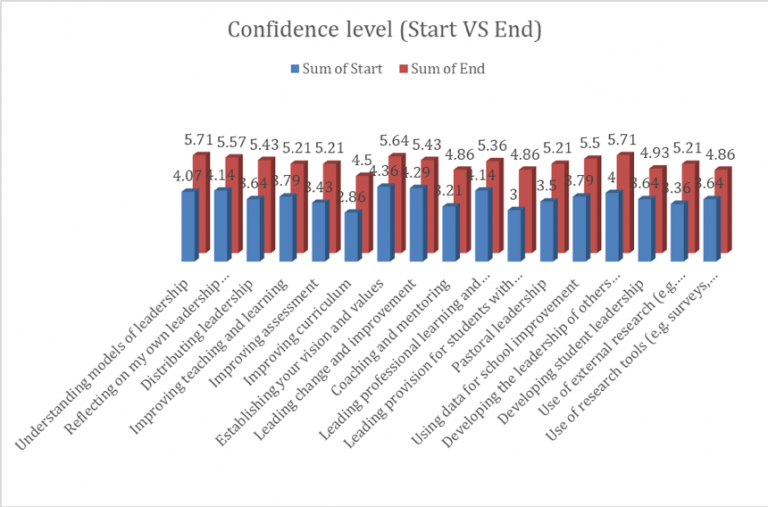Building Leadership for Change
Creating capacity for sustained school system improvement in Saudi Arabia.

17 December 2019
Saudi Arabia’s Ministry of Education, as part of the reform agenda set out in the country’s “Vision 2030” strategy has launched an ambitious series of professional development programmes for teachers and school leaders, aiming to create capacity for sustained school system improvement. The Ministry has taken an internationally collaborative approach to this in partnership with universities in Canada, Australia and the UK.
Challenge
The challenge set by the Ministry of Education was to help the cohort of school leaders and supervisors equip themselves with the technical knowledge and leadership qualities and skills to become effective “change agents” on their return to Saudi Arabia. A core aim set out by the Ministry was to encourage a shift from an administrative model of school and system leadership to one focused on leadership for learning, sometimes described as “instructional leadership.”
In 2018, IOE was invited to design and deliver a year-long, immersive, leadership development programme for the “best of the best” school leaders and supervisors (a role which combines the functions of inspector and school improvement partner) from across the Saudi Arabia state school system.
Solution
The “Building Leadership for Change through School Immersion” programme (or Khebrat خبرات which translates as “experience”) was delivered in London, with participants living here with their families for one year, spending a substantial proportion of their time on placements in London schools as well as completing university-based leadership and English language courses.

The programme was collaboratively designed and delivered by the UCL Centre for Educational Leadership, the UCL Centre for Languages and International Education (CLIE) and IOE partner schools: Walthamstow School for Girls, Oaklands School, Newham Collegiate Sixth Form Centre and schools from within Lambeth Teaching Schools’ Alliance. Participants’ experience included three connected elements:
- English language skills development, provided by CLIE. This took the form of an initial 6-week intensive programme, followed by weekly sessions throughout the year which supported participants in developing the academic and general language skills as well as cultural-linguistic awareness needed to engage both in their school placements and the IOE-based leadership development programme.
- Guided school immersion programme in our partner schools: 3 separate placements for all participants in London schools, with personalised weekly support from both school-based mentors and IOE faculty mentors.
- A school leadership development programme at IOE, organised around four taught modules:
- School Leadership and Management
- Developing Teaching and Learning, Curriculum and Assessment
- Leading Professional Learning and Development
- Leading Change and Improvement
In every half term, guided by their mentors, participants carried out professional enquiries (based on appreciative enquiry principles) into an individually chosen element of their placement schools and then presented their learning to their peers and staff from CLIE and the UCL Centre for Educational Leadership, using the UCL Centre for Educational Leadership Enquiry Framework:

Reflective questions addressed by participants as they engaged with the framework to pursue their chosen focus included:
- What have I learned from my classes, research and reading?
- What have I observed in my placement school?
- What are the similarities and differences with practice in my context in Saudi Arabia and with my own professional practice?
- What is particularly relevant?
- What impact could this have on my practice as a leader and for the wider education system?
This approach encouraged participants to connect their school and university-based learning in London with their own practice-based expertise and experience in their home contexts, and to focus on future action.
At the end of the programme, supported by their LCLL mentors and CLIE tutors, participants prepared 2000 word formal academic reports in English, demonstrating their learning from across the programme and with focuses chosen by them (reflecting their areas of responsibility in their home roles).
IOE welcomed the first cohort to London in January 2019 and all participants successfully completed the programme at the end of the year.
Impact
Participants were overwhelmingly positive about the progress they made as leaders during the programme, reflected in a substantial increase in confidence in every dimension of leadership. The highest confidence ratings were in the areas of understanding models of leadership, establishing their vision and values and developing the leadership of others in their organisations.

Participants also noted that:
“After this programme, I now have different ways to lead professional development, like coaching and peer to peer learning”
“Changing culture starts with moral purpose and shared values… an emphasis on continuous learning and great professional development leads to significant improvement in pupil outcomes”
“For me, as a leadership supervisor, the focus will be on outputs rather than operations, moving away from a focus on office work to ways of improving the levels of students’ achievement and behaviour as well as raising the level of teaching and learning in schools”
The impact of CLIE’s integrated English language support programme was also demonstrated in participants' ability to engage with the complex content and academic demands of the IOE-based leadership development programme, with the periods of school immersion, and with the wider community in London.
Looking ahead
Colleagues were delighted that one participant received a conditional offer of a place on IOE’s Educational Leadership MA programme and two further participants have applications in progress. Having returned to Saudi Arabia, many participants are applying for promoted posts within the Ministry of Education, at regional level, and in university education faculties.
Although there are no plans for a longitudinal evaluation of impact, there is optimism that the programme will provide a meaningful foundation for future contributions from participants to the development of the Saudi Arabia school system and colleagues will watch their next steps with interest.
 Close
Close


